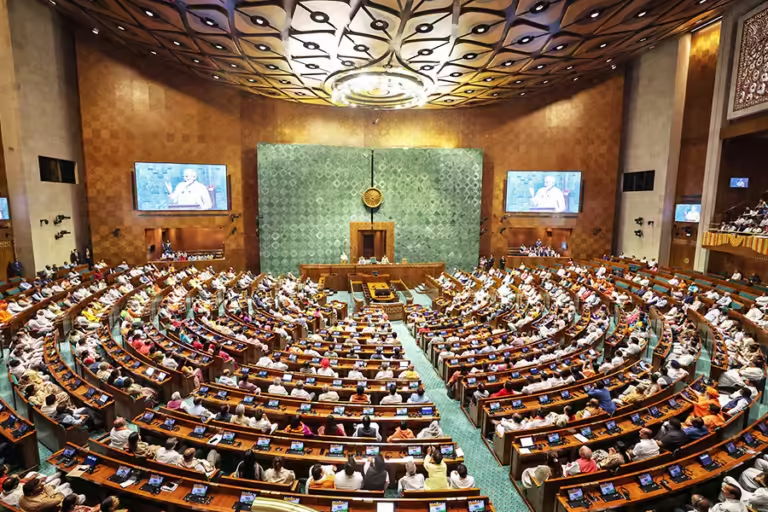Supreme Court Examines Audio Linking N. Biren Singh to 2023 Manipur Clashes
News Summary
On May 5, 2025, the Supreme Court of India reviewed a sealed forensic report concerning audio recordings that allegedly implicate former Manipur Chief Minister N. Biren Singh in the 2023 ethnic violence between the Meitei and Kuki communities. The petition, filed by the NGO Kuki Organisation for Human Trust through advocate Prashant Bhushan, calls for a court-monitored Special Investigation Team (SIT) to probe the leaked audio clips, which purportedly reveal Singh’s involvement in orchestrating the violence. A report by Truth Labs suggests a 93% match to Singh’s voice, though Solicitor General Tushar Mehta questioned the credibility of the private lab’s findings. The Supreme Court has scheduled the next hearing for the week of July 21, 2025.
Unpacking the Allegations: A Deep Dive into Manipur’s Political Turmoil
1. Setting the Stage: The 2023 Manipur Clashes
In 2023, Manipur witnessed severe ethnic violence between the Meitei and Kuki communities, leading to numerous casualties and widespread displacement. The unrest was marked by allegations of state bias, with critics accusing the then Chief Minister N. Biren Singh of exacerbating tensions through inflammatory rhetoric and policies perceived as targeting the Kuki community. Reports indicated that Singh’s administration was seen as vilifying Kukis with accusations related to “poppy cultivation,” “forest encroachment,” and “drug smuggling,” contributing to the escalation of violence.
2. The Emergence of the Audio Recordings
In August 2024, a 48-minute audio recording surfaced, allegedly featuring N. Biren Singh discussing plans to target Kuki-dominated areas. The recording, if authenticated, could suggest direct involvement of the former Chief Minister in orchestrating the violence. The NGO Kuki Organisation for Human Trust, through advocate Prashant Bhushan, submitted this recording to the Supreme Court, seeking a thorough investigation.
3. Forensic Analysis and Its Implications
Truth Labs, a private forensic laboratory, analyzed the audio clip and reported a 93% match with Singh’s voice. However, Solicitor General Tushar Mehta dismissed the credibility of this finding, questioning the reliability of private forensic analyses in such sensitive matters. The Supreme Court, while acknowledging the ongoing investigation, has requested further consultations and an updated report, indicating the seriousness with which it views the allegations.
4. Political Repercussions and Resignation
Facing mounting pressure and the threat of a no-confidence motion, N. Biren Singh resigned from his position on February 9, 2025, after 20 months of intermittent violence. Subsequently, President’s Rule was imposed in Manipur, placing the state under direct central administration. This move was seen as a response to the alleged breakdown of constitutional machinery and the need to restore order.
5. The Role of Armed Groups and State Allegations
During the period of unrest, reports emerged about the involvement of armed groups like Arambai Tenggol and Meitei Leepun, which were allegedly patronized by Singh’s administration. These groups were accused of targeting the Kuki community, further inflaming ethnic tensions. Critics argued that the state’s actions, including internet shutdowns and perceived security force biases, contributed to the escalation of violence.
6. Human Rights Concerns and International Attention
The violence in Manipur drew national and international attention, especially after incidents like the viral video showing two Kuki women being paraded naked and assaulted. Human rights organizations, including the United Nations High Commissioner for Human Rights, expressed alarm over the situation, urging authorities to protect vulnerable communities and hold perpetrators accountable.
7. Supreme Court’s Ongoing Involvement
The Supreme Court has played an active role in addressing the crisis in Manipur. It formed a committee led by retired judges to oversee relief and rehabilitation efforts and appointed a former police commissioner to monitor investigations. The court’s proactive stance underscores the gravity of the situation and the need for impartial investigations into the allegations.
8. The Path Forward: Seeking Justice and Reconciliation
As Manipur continues to grapple with the aftermath of the 2023 violence, the focus remains on ensuring justice for the victims and rebuilding trust among communities. The Supreme Court’s examination of the audio recordings and the broader investigation into the state’s role are crucial steps toward accountability. Moving forward, transparent legal processes and inclusive governance will be essential in healing the deep-seated divisions and preventing future conflicts
❓ Frequently Asked Questions
Q1: What is the significance of the audio recordings in the Manipur violence case?
The audio recordings allegedly feature former Chief Minister N. Biren Singh discussing plans to target Kuki-dominated areas, potentially implicating him in orchestrating the 2023 ethnic violence
Q2: How credible is the forensic analysis of the audio recordings?
Truth Labs reported a 93% match with Singh’s voice. However, the Solicitor General questioned the credibility of this private lab’s findings, and the Supreme Court has called for further investigation.
Q3: What actions has the Supreme Court taken regarding the Manipur violence?
The Supreme Court has reviewed forensic reports, formed committees to oversee relief efforts, and appointed officials to monitor investigations, indicating its active involvement in addressing the crisis.
Q4: What led to the imposition of President’s Rule in Manipur?
Following prolonged violence and the resignation of Chief Minister N. Biren Singh, President’s Rule was imposed to restore order and address the alleged breakdown of constitutional machinery.
Q5: What are the broader implications of the Manipur violence for India?
The Manipur violence highlights challenges related to ethnic tensions, governance, and human rights in India, underscoring the need for inclusive policies and robust legal frameworks to prevent such conflicts.


